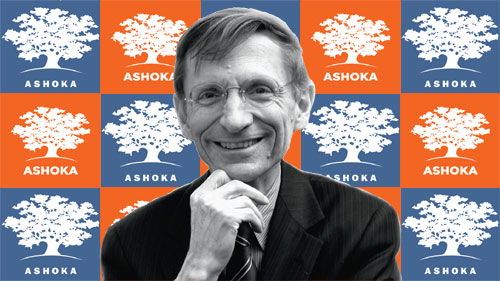|

“The
core psychology of a social entrepreneur
is someone who cannot come to rest, in
a very deep sense, until he or she has
changed the pattern in an area of social
concern all across society.” - Bill Drayton
In
a better world, everyone would be able
to earn their livelihood at jobs that
help to make the world a better place.
Many people today are finding ways to
work for a better world and make a living
at the same time. A social entrepreneur
is someone who sees a social problem and
creates a new and innovative way to address
it. While some social entrepreneurs work
through nonprofits, citizen groups or
government programs, many create sustainable
businesses to address the problem. Typical
businesses measure their success by the
amount of profit they make; social entrepreneurs
measure their success by how big an impact
they make in bringing about social change.
The
term 'social entrepreneur' is fairly new
- it was first used in the 1960s and 1970s.
But social entrepreneurs can be found
all throughout history and include many
historical figures. Florence Nightingale,
for example, established the first nursing
school and helped develop modern nursing
practices; Robert Owen created one of
the first cooperative movements, and Maria
Montessori, Italy's first female physician
created a new education method that supports
each child's unique character and development.
All can be considered social entrepreneurs.
Social
entrepreneurship has become even more
widespread today, often to fill the gaps
where government programs or nonprofit
organizations haven't reached. In 2006,
social entrepreneurship was featured in
the spotlight when Muhammad Yunus, the
founder of the Grameen Bank (which gives
microloans to poor people so that they
can create their own sustainable businesses),
won the Nobel Peace Prize.
The
modern social entrepreneur movement began
in 1981 when social entrepreneurial pioneer
Bill Drayton founded Ashoka: Innovators
for the Public to identify and support
social entrepreneurs. To date, Ashoka
has supported more than 1800 social entrepreneurs
in over 60 countries. Now there are quite
a number of organizations that promote
social entrepreneurship as an important
way to address today's social problems.
The Skoll Foundation, started by eBay's
first president Jeff Skoll, awards a million
dollar annual prize to a number of social
entrepreneurs. The Schwab Foundation for
Social Entrepreneurship, created by World
Economics Forum founder Klaus Schwab,
highlights social entrepreneurs of the
year around the world and helps connect
them to investors and to each other. YouthActionNet
and YouthVenture promote social entrepreneurship
as a way to empower youth who wish to
help build a more peaceful, just, prosperous
and sustainable world.
|